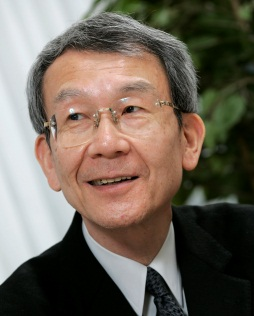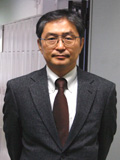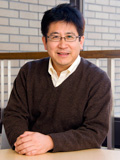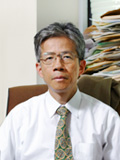Islamov Bakhtiyor Anvarovich, Specially Appointed Researcher (Branch of the Moscow State Institute of International Relations (University) in Tashkent)

- Profile
- BAKHTIYOR ISLAMOV is a professor of Economics, former Uzbek ambassador in Russia and Belarus, deputy foreign minister. His research interests include economics of development and systemic transformation in transition countries, specifically in Central Asian states and Russia, as well as economic reforms in China. 1977–Graduated from Moscow State Institute of International Relations. 1981–degree “kandidat nauk” from IWSE, AS (Moscow). 2002 – Doctor of Economics from Tashkent State University of Economics. 1990-1992 Visiting scholar, Harvard University and NBER, USA. 1996-2001–Professor of the CNEAS, Tohoku University, and Professor of the IER, Hitotsubashi University, Japan. 2012 – onwards – professor of the Tashkent Branch of the REU. 2013- 2014-Visiting professor of the SRC, Hokkaido University. 2015- 2016–Specially appointed professor of the GSEBA, Hokkaido University, Japan.
- Publications
- “Soviet Central Asia: Problems of Development in the Context of Republic-Center Relations, A Political-Economic Analysis”, DDP#413, Harvard University, December 1991, USA, 80p.; monograph “The Central Asian States Ten Years After: How to Overcome Traps of Development, Transformation and Globalization” published in Japan (Tokyo: Maruzen, 2001), 258 pp.; journal article is “The Central Asian States 20 Years after: “Puzzles” of Systemic Transformation”. Acta Slavica Iaponica, No XXXV, pp. 109-134 (2014).
Now he studies the problems of sustainable human development and intends to fill some gaps in transition and development economics contributing original alternative approach to the analysis of processes of systemic transformation undertaken by post-socialist countries.
Shuji Koiso, Specially Appointed Researcher (Director, Chiiki-Kenkyu-Koubou)

- Profile
- Shuji Koiso graduated from Kyoto University’s Faculty of Law in 1972. After working at the Hokkaido Development Agency, the National Land Agency (now the Ministry of Land, Infrastructure, Transport, and Tourism), and other administrative institutions, he served as a Professor at the Kushiro Public University of Economics and as Director of the Kushiro Public University Research Center for Regional Economics from 1999. He held the position of university President from 2008 to 2012. He became a part-time Advisor to North Pacific Bank in May 2012 and assumed his present post in September 2012. From 2012 to 2017, Specially Appointed Professor at Graduate School of Policy, Hokkaido University, he assumed his present post in 2017.
- Publications
- Industrial Policy for Regional Independence (in Japanese), Imagine Publishing Co., Ltd., 2007; History of Hokkaido Development in the Postwar Period (in Japanese), co-author, Hokkaido Development Association, 2007;Towards the shinning future of region(in Japanese),Hakurosha Co.,Ltd.,2013;Commons Regrowth and creation of region(in Japanese),Hokkaido University Press.,2014.
I worked on regional development and regional planning in administrative institutions for a significant part of my career. Since entering the academic world, I have made efforts to engage in practical research activities as a way of helping to address regional issues. I have also worked on activities to support regional advancement in developing and transition countries. Based on these experiences, I am currently studying policy instruments that leverage the spontaneous power of regions.
Kazuo Machino, Specially Appointed Researcher (President, Hokkaido Musashi Women’s Junior College)

- Profile
- Kazuo Machino graduated from Kyoto University’s Faculty of Economics in 1980. After working at the Mitsubishi Research Institute, he received a Ph.D. from the University of North Carolina at Chapel Hill in the U.S. He took up a position as an Associate Professor at Hokkaido University’s Faculty of Economics in 1995. After serving as a Visiting Scholar at the University of North Carolina, he assumed his present post in 2004. He served as the Dean of the Graduate School of Economics and Business Administration of Hokkaido University from 2008 until 2012. He has also served as the Director of the REBN since it was established in 2011.
- Publications
- Introduction to Economics: Understanding Business and Policy (in Japanese), co-author, Yuhikaku Publishing Co., Ltd., 2008.
I began research with game theory analysis of the political (collective) decision-making process, then studied evolutionary games and network games to enable modeling of the processes behind the formation of economic/social connections. In the area of norm formation processes, I am also interested in studying neuroeconomics, evolutionary biology, ethology, and other sciences that concern the origins of reciprocity in humans. I have further participated in an interdisciplinary research project on legal policy science to support the application of these theoretical studies to actual institutions and policy measures. After we established the REBN, I have been studying how to measure people’s well-being (affluence) in different regions with different needs.
Makoto Nishibe, Specially Appointed Researcher(Professor, School of Economics, Senshu University)

- Profile
- Makoto Nishibe graduated from the University of Tokyo’s Faculty of Economics in 1986. After serving as a Special Assistant (Economics) at the Consulate-General of Japan in Toronto, he completed an M.A. in Graduate School of Economics, York University in Canada followed by a Ph.D. at the University of Tokyo in 1993. He became an Associate Professor at Hokkaido University’s Faculty of Economics in 1994. After serving as a Visiting Fellow at Cambridge University and the University of Siena, he assumed his present post in 2007. He was Professor at this graduate school until 2017, he assumed his present post in 2017.
- Publications
- Whither Capitalism? (in Japanese), NHK Publishing Co., Ltd., February 2011; Evolutionary Economics: Its Foundation (in Japanese); author and coeditor, Nihon Keizai Hyoronsha Ltd., Sep. 2010; The Frontier of Evolutionary Economics (in Japanese), author and editor, Nippon Hyoron Sha Co., Ltd., July 2004; Let’s Learn about Local Currency (in Japanese), Iwanami Shoten Publishers, Sep. 2002.
In my specialized field of evolutionary economics, economic evolution is seen as a process of change in institutions or sets of rules that can be viewed as replicators or genes. In this field, attention has been so far given only to outer institutions such as law, accounting systems and currencies. However, evolutionary economics also involves inner institutions, including the customs, practices, and value norms of individuals and corporations. Economic agets rely on inner institutions within the framework of outer institutions in order to do any act. The process in which outer and inner institutions mutually interact and change is economic evolution. By way of example, the Special District for the Great East Japan Earthquake Reconstruction is the manifestation of a policy intended to temporarily change outer institutions as a special case, whereas energy-saving initiatives stem from a policy designed to promote changes to practices, value norms, and other activities in inner institutions. My study focuses on such socio-economic policy as well as communities and networks from such new perspectives.
Fumikazu Yoshida, Specially Appointed Researcher (Professor, Faculty of Economics, Aichi Gakuin University)

- Profile
- Fumikazu Yoshida graduated from Tokyo Metropolitan University’s Faculty of Economics in 1973 and completed a Doctoral Program at Kyoto University’s Graduate School of Economics in 1978. He received a Ph.D. in Economics from Kyoto University before taking up a position as a Lecturer at Hokkaido University’s Faculty of Economics in 1978; he assumed his present post in 1992.
- Publications
- The Cyclical Society (in Japanese), Chuokoron-Shinsha, Inc., Apr. 2004; A Lecture on Environmental Economics (in Japanese), Iwanami Shoten Publishers, 2010; Sustainable Low-Carbon Society I, II, III, Hokkaido University Press, 2009, 2010, 2011; Green Economy (in Japanese), Chuokoron-Shinsha, Inc., Jun., 2011.
I have conducted theoretical and empirical studies on the mutual relationship between the environment, technology, and economics with a focus on the Itai-itai disease, Minamata disease, high-tech pollution, IT pollution, green economies and more over a period of 33 years since assuming a post at Hokkaido University in 1978. My research has spanned Hokkaido, Japan, and the world; my work is currently on the environment, energy, and economics with particular focus on denuclearization and renewable energy. I hope to concentrate on these themes until my retirement as a form of contribution to Hokkaido’s economy.
